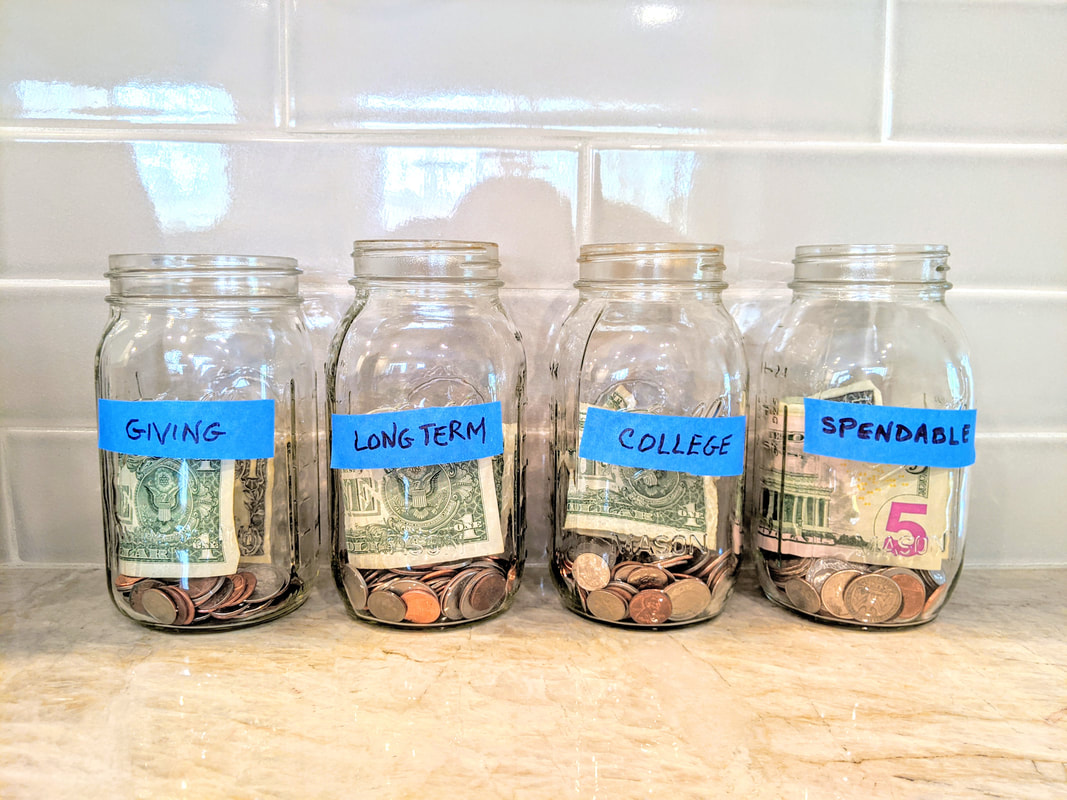Parents – what an awesome privilege we have to break the pattern of financial bondage that is “normal” in America, not only by you yourselves getting on the road to financial health, but in teaching your kids how to become financially savvy from a young age, so they never have to experience what is so typical in our society. Helping parents raise financially wise kids is one of the main missions of my business and my life! Why? Because in helping adults for the past 10 years get their own personal finances in order, I’ve seen the devastation that financial bondage and turmoil can create in families. But I’ve also worked with kids 7-18 and have helped set them up for financial health, hope, and freedom as they enter adulthood. Parents who help their kids develop personal finance know-how, especially when the money they receive is tied to work, can accomplish the following:
“We’re not trying to raise good kids. We’re trying to raise kids who become great adults.” Andy Andrews Here’s a summary of what our family did to help develop financial know-how in our kids. When our kids were 3 and 7 years old, my husband and I joined a parenting book group, reading one of Dr. Kevin Leman’s parenting books (Becoming the Parent God Wants You To Be). Among other takeaways, we latched onto the concepts of being intentional with chores and paying our children an allowance based on their age per week (we started at age 7). Yup! We thought that was a lot of money for a young child, but there was more to it. They didn’t get access to all of the money to do as they pleased; there was structure attached and purposeful lessons to be learned. Throughout the years, the girls had chores to do (typically a 15-20 minute chore each schoolday (since we homeschooled they did this right after Bible study and before breakfast)), and the allowance they received was kind of like a salary. Their money was broken up into 4 “buckets” (that’s what we called them, but you could use jars, envelopes, shoeboxes, etc… CLEAR is best). We started with cash but then moved to actual bank accounts because managing the cash was a bit cumbersome. Using cash would have been better because of the tactile sense and emotion attached to real money. We however managed all of the money via bank accounts and only used real money when the kids wanted to spend it. The 4 “buckets” that we used were as follows: The 4 “buckets” that we used were as follows:
GIVING – this account was used for charitable contributions and good stewardship to church, ministries that the girls were interested in, and for mission trips that they took. SPENDABLE - this account was used for things that Mom & Dad wouldn’t pay for. The kids learned GREAT lessons in patience, responsibility, opportunity cost (choosing priorities for their money), etc… We always called this "Spendable", but it was really a SAVE/SPEND account, because oftentimes they were saving for something specific. COLLEGE - this account was for the 30% that our kids had to pay for their college. At a state school of $28k a year, that’s $8,400/year for them. Even with the money saved in this bucket/account, this was quite an undertaking, yet they both still did it and came out of college debt free. Much more to share on this. LONG-TERM/CAR - this account was for the kids to buy their own car at age 21. We had told them from the beginning that we would match this fund UP TO $5000 when it came time to purchase their car. So when the oldest turned 21, she made sure her long-term savings had at least $5000, which then meant with our match, she had $10,000 to spend on a car. She bought a used 2002 Honda Accord and had a little work done on it all for under $6,000. She used this account to then help cover auto insurance, maintenance, vehicle taxes… The girls also had their own businesses as they got older, and they continued to split up their earnings into these 4 buckets (bank accounts). I mentored them on starting their businesses, and one business concept was so good that my younger daughter ran the business (with support from me) every summer for 3 summers from age 14 to 16. Each year, she took on more and more responsibility, which freed me up. I have lots of lessons about the skills and character development gained with this endeavor and all of the entrepreneurial endeavors. There is SOOOOO much more to this story, including the confidence, responsibility, reliability, generosity, and freedom the girls gained through all of this experience. I encourage parents to be intentional about this training with their own kids so they become financially wise and savvy from a young age. By teaching them early, you’ll instill good financial habits that they’ll take with them into life so they can avoid the financial pitfalls that so many fall into. ************************** JOIN OUR FACEBOOK GROUP: To find out more and to join the conversations, please join our Facebook Group called Kataltyic Kids https://www.facebook.com/groups/KatalyticKids where we talk more about ways to raise financially wise kids from a young age and develop Godly character as part of that. YOUTUBE / PODCAST: Also, check out my Youtube channel to see interviews with other parents on finances and entrepreneurship with their kids, interviews with my own adult daughters, and input from some of the “experts” out there.
|
AuthorAs a certified Personal Finance coach (and homeschooler of 15 years), Kathleen has worked with people of all ages, but her passion is to help kids/teens/young adults take control of their finances early, learn entrepreneurial skills, generate multiple income streams, and get on a path to Financial Hope & Freedom so they can live into their passions and purpose. (Free Webinar on how to Empower Money Smart Kids with Financial Literacy & Entrepreneurial Skills) Archives
January 2023
Categories
All
|
Copyright 2023 by Katalytic, LLC



 RSS Feed
RSS Feed